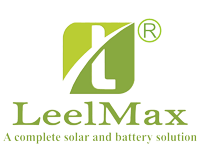Solar technology is evolving at an unprecedented pace, with efficiency improvements driving the industry forward. As we enter 2025, the competition to develop the most efficient solar panels has intensified, with researchers and companies racing to push the boundaries of photovoltaic (PV) performance. But which technology is set to lead the efficiency race, and how will it shape the future of solar energy? Let’s explore the latest breakthroughs and their implications.
The Importance of Efficiency in Solar Panels
Efficiency is the key factor determining the effectiveness of a solar panel. It measures how much sunlight a panel can convert into usable electricity. Higher efficiency means more power generation per square meter, reducing the overall cost and space requirements for installations. With global energy demand increasing and the push for sustainability growing, improving solar panel efficiency is critical for achieving widespread adoption.Top Contenders in the 2025 Solar Panel Efficiency Race
-
Perovskite-Silicon Tandem Cells
- Efficiency exceeding 30% – A major leap compared to conventional silicon cells, which typically max out at around 22-24%.
- Lower production costs – Perovskite materials are cheaper to manufacture compared to silicon.
- Flexible applications – Lightweight and adaptable to different surfaces, including curved structures.
-
Quantum Dot Solar Cells
- High energy conversion rates – Theoretical efficiencies reaching up to 40%.
- Better performance in low-light conditions – Enhancing solar power generation in cloudy environments.
- Scalability – Can be integrated into flexible and lightweight solar panels.
-
Multi-Junction Solar Cells
- Unmatched efficiency – Higher energy capture compared to single-junction silicon cells.
- Ideal for concentrated solar power (CSP) systems – Often used in satellites and high-efficiency solar farms.
- Enhanced energy yield – More electricity output per unit area.
-
Bifacial Solar Panels
- Up to 20% more energy generation – Compared to traditional mono facial panels.
- Greater adaptability – Suitable for ground-mounted and rooftop installations.
- Improved durability – Advanced materials enhance longevity and performance.
